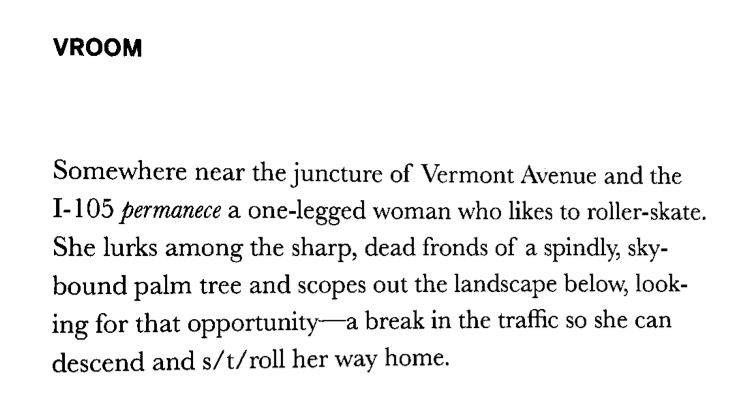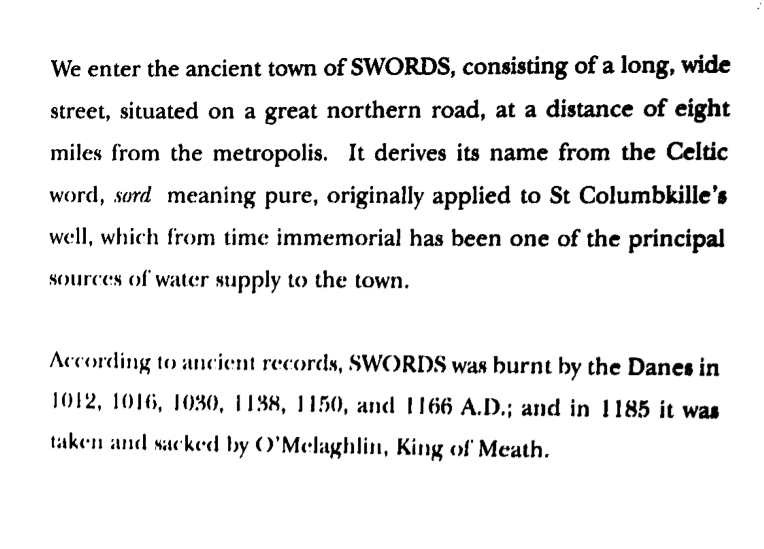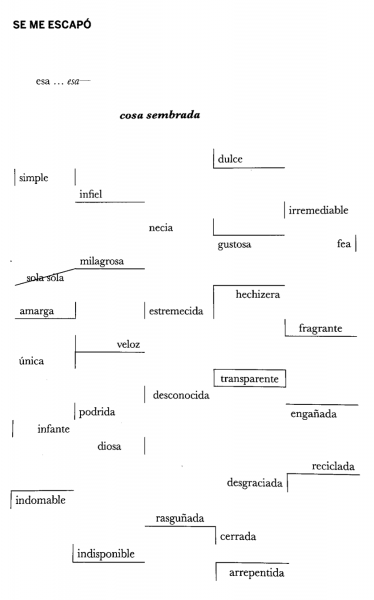Minor, Keller, explorations

At the 2015 annual meeting of the American Comparative Literature Association, Lucy Alford and Bronwen Tate organized a seminar called “Minimalisms, Maximalisms, Modes: Formal Scale and Poetic Attention.” Two questions asked by the call for papers for this stream — “How do changes in formal scale shape the reading experience across cultures and linguistic traditions?”; and “How are ambition, expansion, contraction, reticence, or garrulity in poetry read in terms of gender, race, class, and other social identities?” — I take as especially germane to considering Elena Minor’s collection Titulada (2014), published in the Akrilika Series by Noemi Press. I want to examine some of the features of Minor’s book with attention to both form and cultural indentarianism because in many respects the Chicana character of her poetry amplifies the range of her poetic forms. Starting by identifying Minor’s own summation of her aesthetic, then close-reading a few representative poems while elucidating tensions between voice and materiality that invoke wide-ranging avant-garde and philosophical principles and precedents, I want to explore how Chicana discourse interplays with the graphemic complexity of her poems.
In an interview published online, answering a question that suggested her work was “experimental,” Minor asserted, “I don’t think of my work as ‘experimental.’ The word implies a theoretical framework that is not my starting point. That said, though, I do consider my work ‘exploratory’ because that’s what I do with language — explore its possibilities.”[1] Minor’s invocation of the term exploratory made me think of Lynn Keller’s book Thinking Poetry: Readings in Contemporary Women’s Exploratory Poetics (2010), which does provide a theoretical starting point from which to examine Minor’s poetry. Like Minor, Keller offers “exploratory” as an alternative to “experimental” regarding women’s innovative poetry, noting that, while experimental poems, by strictest definition, establish procedure, run tests, and present results, whatever they may be, exploratory poems purposefully set aside any aspirations to be “comfortable or comforting” to the ends of particularly constructing “opacities” that “are not gratuitous.”[2] One rationale for these “opacities” aligns with Keller’s decision to focus her book on poets who are women; she notes that while many poets in the ’70s, ’80s, and ’90s like Kathleen Fraser, Susan Howe, Alice Fulton, and Myung Mi Kim were committed to practicing linguistically innovative poetry, the predominance of male theorists in the field of Language poetics, and the collective disavowal of “self-referentiality” or “evident personal investment” in Language poetry, occluded feminist ideas and experience to gain adequate expression through what was valued as sheer linguistic experimentation.[3] Thus, many of these poets require a different regard. The empirical or objective connotations of experimental are better replaced with the more subjective or perspectival exploratory, for the latter makes no apologies for agendas that are personal or political.
Keller refracts the singular idea of the exploratory into several narrower concepts that, by her own admission, are intended to apply to likeminded poets not included in her study. One such concept is what Keller calls “contracts of (contracted) intelligibility”: a dynamic of exploratory poems in which “certain conventions of intelligibility operate, though within a context of purposeful obscurity.”[4] This of course is a divergence from the idea of a contract of intelligibility in which narrative unfolds with “conventional coherence.” Consider Minor’s poem “Vroom.”[5]

It reads like a prose poem, with intelligible syntax, although the line breaks lend to double readings. Especially the middle two lines ending in hyphens, which make me go back and note all the hyphens (visual, or in substance) on every line (in the first, it’s actually spelled out in the word “juncture”). The leitmotif of the hyphen, in a way, is the aegis of the poem, from the opening “juncture” to the final “break in the traffic,” which formally and visually invites a reading of how intelligibility in this poem gets contracted. In Keller’s terms, narrative potential is contracted through brevity: clearly there is a “context of purposeful obscurity.” Who is this one-legged woman? Is there a story behind the leg? Did she lose it doing precisely this? Is she the poet? Is she high? Determined? Out of her mind? Poor? Homeless? A veteran? A symbol? An objective correlative?
The poem’s brevity, syntactic coherence, and stark imagery yield an array of initial generative readings, but for the sake of economy, I want to focus in on two particular moments when the intelligibility of the language — I should say, the English — is compromised. In the final line, the slashes in the word stroll allows the reader to sound it out in a way suggesting a carefree attitude (or mocking it). They also allow the word to prevaricate; three words — stroll, troll, and roll — inhabit the same space, a salient truncation of intelligibility: contracted intelligibility.
But in the second line the poem, the word “permanece” is used, and the fact that it’s in Spanish pretty much changes everything. No other word in the poem does more to contract intelligibility. There is context to the poem; the junction of Vermont Avenue and the 105 is the southern point of a two-mile corridor between the Westmont and Vermont Vista neighborhoods in LA that, a few months before Titulada was published, was noted in the Los Angeles Times as, by the standard of per capita murders, one of the most dangerous places to live in the US (a detective is quoted as calling it “death alley”). It’s also worth noting that the terrain at this particular location is very flat; the only variance in grade that would enable a one-legged woman to roller-skate through traffic is the Vermont Avenue overpass above the 105. A contextualized reading of this sliver of narrative would glean that the descent of this woman to her “home” is the path from above the overpass to below. Ella permanece aquí; ‘she stays here.’ Using the Spanish in the poem hides that truth from the Anglophone reader — that she stays at this place, not lives. It contracts the intelligibility of knowing that her home is beneath the overpass, that there’s a reason why we read the word troll within “s/t/roll.”

I’ve juxtaposed the poem “Vroom” with the excerpt above, from Susan Howe’s collection Secret History of the Dividing Line (1978), to show how two different poets — both women, both rangy in aesthetic, both composing syntactically coherent prose poems (or near-prose poems) — contextualize the significance of a single word through very different cultural backgrounds. Howe features prominently in Keller’s study of exploratory poetics, and even a cursory comparison here between Howe and Minor can highlight the importance of cultural circumstance in Minor’s poetry: the circumstance of being Chicana. I don’t know if one can resolve with any certainty what else is important about the word permanece being in Spanish in “Vroom”; perhaps the one-legged woman speaks Spanish, perhaps the people in the community regard her in this vocabulary, perhaps it’s the poet’s vocabulary. But the isolation of a Spanish word, and to attune a reader to its gamut of denotation and connotation, is significant in Minor’s exploratory poetics, featured differently in one of her more abstract poems, “Se Me Escapó” (‘It Escaped Me’). A two-page poem, here is the first:[6]

The boldfaced words at the top, “cosa sembrada,” signify ‘something scattered,’ and in the range of words below, the unnamed ‘thing’ can be inductively reasoned to a point suggestive, if not definitive: ‘simple,’ ‘sweet,’ ‘unfaithful,’ ‘unavoidable,’ ‘stubborn,’ ‘tasty,’ ‘ugly,’ ‘miraculous,’ ‘alone,’ ‘charming,’ ‘trembling,’ ‘bitter,’ ‘fast,’ ‘fragrant,’ ‘unique,’ ‘transparent,’ ‘unknown,’ ‘rotten,’ ‘cheated,’ ‘infant,’ ‘goddess,’ ‘recycled,’ ‘disgraced,’ ‘indomitable,’ ‘scratched,’ ‘locked,’ ‘unavailable,’ ‘sorry.’ (It’s also worth noting that all gendered modifiers are feminine in the Spanish.)
The dynamic of “Se Me Escapó” is illustrative of another type of exploratory poem that Keller in her analysis defines as a specie of “pattern-bounded unpredictability.” Keller explains this idea through a rationale provided by Joan Retallack in her essay, “Poethics of a Complex Realism,”[7] which asserts that “the artwork should be, like one’s immediate experience, ‘a complex intersection of intention and nonintention, pattern and surprise.’”[8] “Pattern-bounded unpredictability” is a negotiation between purpose and chance, another instance of a feminist reconstitution of what many male counterparts had purported as unbridled linguistic play (as if their male-gendered aesthetic decisions, even if apparently abstract, weren’t actually gendered). The exploration of connotations between words in “Se Me Escapó” isn’t quite as ‘scattered’ as a “cosa sembrada” might suggest; sembrada also means ‘sown,’ as in the scattering of seeds, and that’s really more to the point. The topoi of the poem’s vocabulary resemble scabs of the growth of a personal feminist conscience, words here and there whose abrasions against the invisible hand of the poem have added relief to its presence. In an unrelated context, Keller has used the phrase “pseudo-Sapphic remnant,”[9] and to me, to an extent, it seems applicable here.
The visual aesthetic of this poem can be historically traced back through a long line of innovation — back to Concrete poetry of the ’50s, and even further to Mallarmé’s “Un Coup de Dés” — but in the ’60s and ’70s, the Brazilian post-Concretist movement of “Poema/Proceso” led by Wlademir Dias-Pino produced abstract poems that sought to bind the black marks on the page with the white space and suggest that a reader’s regard of both simultaneously was the approach to understanding poetry as a process. In many such poems by Dias-Pino, some assemblages of letters are words, some are roots, suffixes, some have no codified lexical significance. Growth in number, from one set of letters to multiple, suggests the growth inherent to process, and suggestion was elemental to the aesthetic of “Poema/Proceso.” Minor’s poem “Se Me Escapó” is comparably suggestive, but the words she includes accumulate around some semblance of a theme that feels experiential. As an exploratory poet, Minor has layered two levels of complexity upon the basic play of “Poema/Proceso”: the cultural ramifications of writing in Spanish as a US poet (in other words, her Chicanisma), and a detectible, if elusive, feminist proclivity that replaces the disembodied, apolitical values of earlier twentieth-century avant-gardes — and by doing so, exposing those values as not being totally self-aware and accurate in their assessment or ideals.
This brings me to one last of critical concept from Keller that I want to address here, what she terms “iconoplasm.” Opposed to “the rigid oppositionality of iconoclasm,” Keller identifies a particular trait of exploratory poetics characterized by “a transformative molding or critique” of poetic precedents and influences. Keller explains that an “iconoplasmic engagement with a range of predecessors” can offer “mutations rather than shatterings of” models and sources.[10] Minor’s poem “[Olvido] Like A New Century” employs lexical combinations reminiscent of Joycean portmanteaus, and lexical deformations evocative of e. e. cummings, but her “transformative moldings” of these tactics gain substance with her slippage between English and Spanish, as in her pairing of “palaver” with “palabra” (‘word’) and other plays hinging on alliteration, consonance, and assonance — what Jakobson called paronomasia.
Minor’s poem “Carucha” (best English translation would be something like ‘Jalopy,’ or ‘Hoopdy’), “Carucha” highlights a slippage between her languages by visually portraying a verbal parabola that slides from English to Spanish.[11]

The first time I read this poem, the idea, coupled with the form, reminded me of Stephen Greenblatt’s reading of Lucretius’s idea of clinamen, which Greenblatt revitalized of course as ‘swerve,’ “an unexpected, unpredictable movement of matter”: “an unforeseen deviation from the direct trajectory … on which” a “poem and its philosophy seemed to be travelling.”[12] In “Carucha,” it’s not so much the philosophy of the poem that swerves as it is the language in which it is read, and setting aside an inquiry into whether Minor was considering Lucretian swerve when she wrote this, it is the iconographic swerve of the final lines that crosses a linguistic threshold meant to inform the way we ought to read the whole poem: in an accent, a pachuca accent, a chola accent, something like that. Because while Keller’s critical work intersects innovative poetry with feminist purpose to develop the critical framework of exploratory poetics, Minor’s poetry engages exploratory poetics with explorations of Latina experience and language; and when Minor reduces syntax, she amplifies meaning by code-switching between Spanish and English, maximizing the power of suggestion with cultural implications.
[2]. Lynn Keller, Thinking Poetry: Readings in Contemporary Women’s Exploratory Poetics (Iowa City: University of Iowa Press, 2010), 2.
[3]. Ibid., 3.
[4]. Ibid., 38.
[5]. Elena Minor, Titulada (Mesilla Park: Noemi Press, 2014), 35.
[6]. Ibid., 50.
[7]. Joan Retallack, The Poethical Wager (Berkeley: University of California Press, 2004), 255.
[8]. Keller, Thinking Poetry, 71.
[9]. Ibid., 91.
[10]. Ibid., 126–27.
[11]. Minor, Titulada, 36.
[12]. Stephen Greenblatt, The Swerve: How The World Became Modern (New York: W. W. Norton & Co., 2011), 7.
100 years of hispanglo poetics